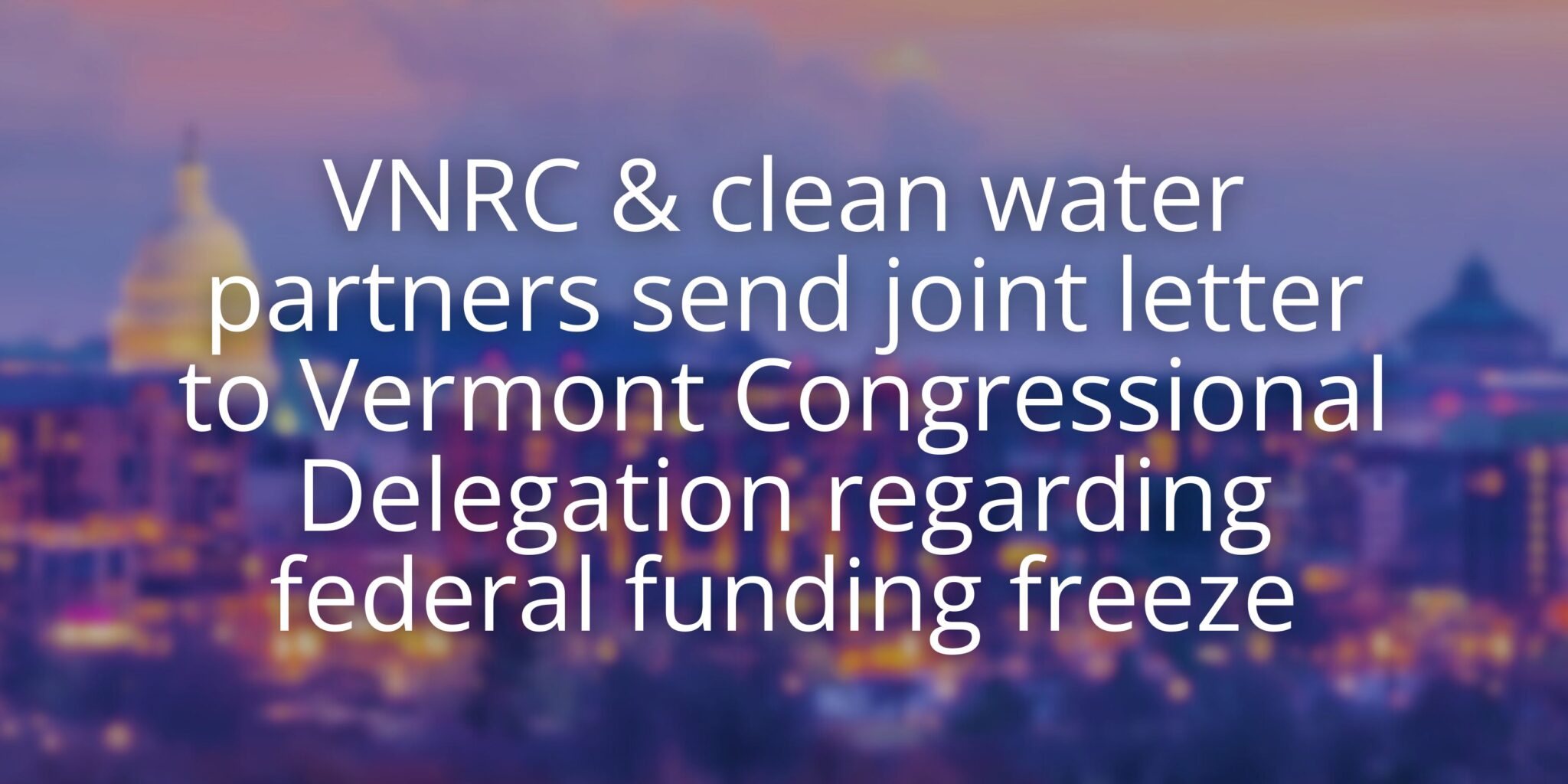Re: Important Information about BIL – Water Projects
Dear Senator Sanders, Senator Welch, and Representative Balint,
We want to make you aware of how recent decisions by the Trump administration have impacted the conservation and restoration work pertaining to Vermont’s waters. As community-based not-for-profit organizations who have been working to restore the health of Vermont’s waters for decades, we believe that our work is critical to Vermont’s economy and health, implementing projects that improve public safety, flood resilience, species biodiversity, and clean water and providing jobs to local communities.
Therefore, you can imagine our shock when we learned last week that the Lake Champlain Basin Program (LCBP) administered by NEIWPCC issued an email to cease all work funded through the Bipartisan Infrastructure Law (BIL) due to the executive order issued by the Trump administration and Memorandums to the Head of Departments and Agencies (M-25-11; M-25-13). Similarly, all BIL and Inflation Reduction Act (IRA) funds have been frozen or put on pause through the US Fish & Wildlife Service (USFWS) cooperative agreement program as well.
These grants and cooperative agreements are substantial sums of money for Vermont. Since the BIL was passed, $6.6 million has been awarded by the LCBP for Aquatic Organism Passage (AOP) projects (culvert rightsizing and derelict dam removal for fish passage, flood resilience, and clean water). Beyond LCBP AOP funds there are millions of obligated federal grants and contracts (including over $4 million from USFWS) on the line statewide for clean water, flood resiliency, and habitat improvement projects.
NEIWPCC has communicated with grantees that they cannot be reimbursed for project costs already incurred. BIL and IRA funds are cost reimbursable but funds for reimbursement are now frozen! This means that organizations, engineers, and excavation contractors have incurred hundreds of thousands of dollars of costs that cannot be invoiced. This will cause untold financial hardship on our non-profit, local governmental and quasi-governmental organizations, scientists, engineering and construction firms as they cannot recoup costs already expended. This also sows confusion and causes legal ramifications throughout the system as groups cannot reimburse contractors when they themselves have not been paid by the federal government.
The need for these funds in Vermont are more critical than ever, especially in the wake of Vermont’s recent floods (July 2023, December 2023 & July 2024). Much of our badly damaged infrastructure – dams and culverts and in some cases roads and bridges – are funded with these federal dollars. As the need for this work grows, the funding sources continue to be scarce.
We carefully plan how to spend precious federal funds and we manage them over 3-5-year time frames, designing programs and staffing in line with the goals of our funding programs. Our engineering consultants and excavation contractors have been competitively selected, contracts have been signed, funds are committed or may have already been spent…only to have the rug pulled out from us with the threat of frozen or reneged funding.
Furthermore, our groups leverage these cost-reimbursable federal dollars to raise supporting state, local and private dollars to implement these projects. Without the federal match, these leveraged dollars disappear and this undermines the ability of our small organizations to employ people that support our state’s economy and to get this important work done for our communities.
We are extremely concerned about the implications of losing this funding, and know that stopping these projects will cause disastrous impacts on our water resources and our communities’ resilience, and undermine the network of Vermont organizations that depend on this work. We ask that the federal delegation do everything in its power to make sure that the federal government pays all invoices and honors its grants and contracts. We ask that the Vermont Congressional Delegation intervene in support of our economy, clean water, flood safety and habitat diversity projects. Thank you for your quick action to protect Vermont’s economy and support our work on behalf of the health of Vermont’s waters.
CC: Governor Phil Scott, Secretary Julie Moore, and Attorney General Charity Clark
Sincerely,
Karina Dailey, Vermont Natural Resources Council
Kathy Urffer, Connecticut River Conservancy
David Deen, Trout Unlimited Chapter Board Member
Dan Fingas, Vermont Conservation Voters
Lyn Munno, Watersheds United Vermont
Elena Mihaly, Conservation Law Foundation
Jenny Patterson, Lake Champlain Committee
Travis P. Marcotte, Intervale Center
Kassia Randzio and Erin De Vries, Vermont River Conservancy
Ira Shadis, Friends of the Mad River
Lindsey Wight, Missisquoi River Basin Association
Jill Arace, Vermont Association of Conservation Districts
Staff and Board of Directors, Memphremagog Watershed Association
Michele Braun, Friends of the Winooski River




